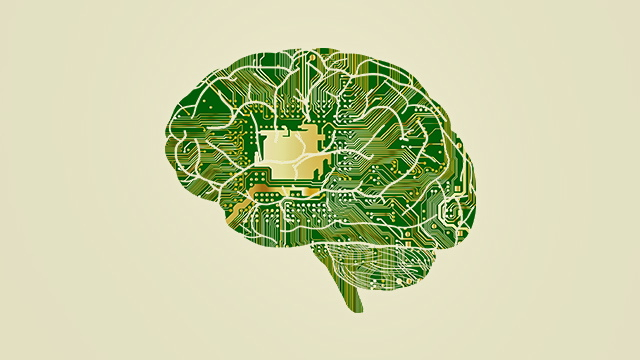NAB 2017: ETC Examines Impact of Machine Learning and AI
April 27, 2017
In an ETC conference at NAB 2017 on machine learning and artificial intelligence, Yves Bergquist, ETC project director of data and analytics, moderated a panel discussion on the opportunities, challenges and pitfalls of machine learning in today’s media and entertainment environment. The group, which included executives with HGST Western Digital, Anvato/Google Cloud and TiVo, also looked into issues of security, human interaction and the impact of automation on human employees.
Bergquist asked whether we are measuring the right thing. “There is a deep semantic, cognitive relationship between people and content,” he said. “Can the content tell us what this relationship is? Can we use the data to understand or are we still biased?”
Alper Turgut, chief executive of Anvato, now part of Google Cloud, responded that his company has been using statistics to verify the relationship. “If you think about computers and human beings at a high level, computers are better at competitive tasks, but not in judgment or classifying things, which involves judgment,” he said. “We used to write algorithms to do that, but machine learning has enabled us to feed the machine with unsupervised learning tools. The moment you give feedback that, yes, this cluster is meaningful, it becomes a dialogue between human and machine.”
HGST Western Digital vice president of marketing Joan Wrabetz agreed. “Closed-loop feedback is essential,” she said. With regard to trusting the data, TiVo vice president of client engagement and partnership Michael Jeffrey reported that “there are some raging debates if core data is useful or misleading us.”
“It takes time for humans to validate themselves to build trust into the model,” he said. “We’ve had some relationships that were untrustworthy and it took months and an army of human beings to build trust.” Wrabetz asked if there was a risk of creating the desired results. “Today what we see on the news is what they think people want to see,” she said. “It’s a real risk that we make something exciting and, over time and with re-enforcement, we make it the exciting thing, and the only thing we see.”
Turgut added that it’s hard to ask machines how they arrived at their conclusions. “To be able to do so would be truly exciting,” he said. “The dialogue would become much more intelligent and learning would go to the next level.”
Panelists had a strong point of view about the role of humans in this ecosystem. “At this stage of the cycle, I don’t think it’s good to go in to the studio to talk about laying off 50 percent of your staff,” said Jeffrey. “A better tack is to ask how you can help their team double or triple their reach, their creativity. That’s the good part of the story right now. As the years go by, people will realize with automation that they don’t need all the staff. There is absolutely, positively a lot of disruption going on.”
Turgut suggested that humans will still own the jobs where the cost of imperfection is high and creativity is required. “Those jobs are reserved for human beings,” he said. “Where the tools are at today, machine learning increases the productivity of professional. In the future, some areas will be automated so much, it will go to the machines.”


No Comments Yet
You can be the first to comment!
Sorry, comments for this entry are closed at this time.